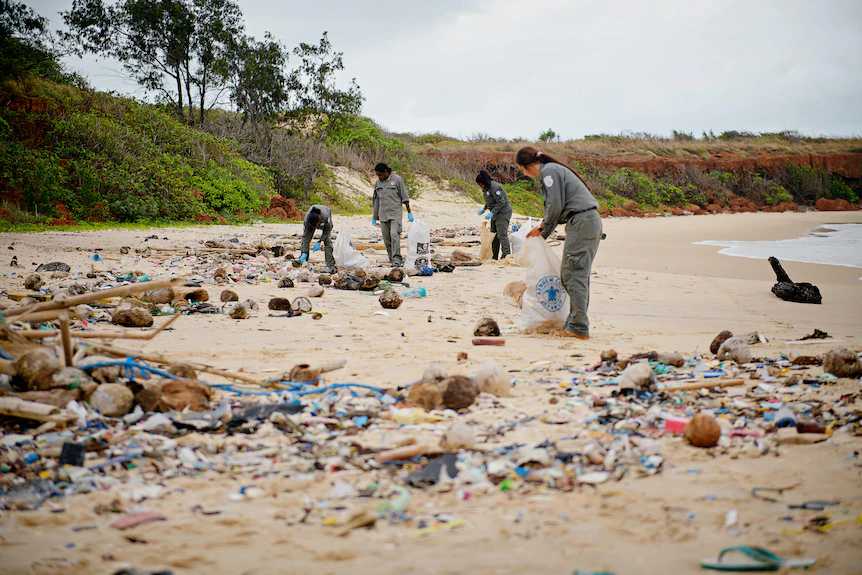Environmental advocates lodge ACCC complaint over 'ocean plastic' products

Environmental advocates have lodged a complaint with Australia's competition watchdog about the terms "ocean plastics" and "ocean-bound plastics", alleging they are a greenwashing marketing tactic. If your favourite yoghurt tub, bank card, rubbish bags or shampoo bottle is claiming to be made of recycled ocean plastics, you might think it was created from plastic recovered from the sea.
But some environmental advocates believe the supply chain of products labelled as ocean or ocean-bound plastics are impossible to verify and the term may mislead consumers.Read More : Plastic packaging recycling calls for better design, fewer materials Both of those terms can be used interchangeably to include plastics collected as far as 50 kilometres from the coast. Most of this recycled plastic is sourced from overseas, including south-east Asia.
An environmental organisation has lodged a complaint with the Australian Competition and Consumer Commission (ACCC), alleging the terms are used to greenwash products.
Greenwashing is when statements misrepresent the extent to which a product is environmentally friendly, sustainable or ethical.
Even experts in the field are confused by the labels. Charlene Trestrail is a researcher with the Sydney University of Technology, who examines the impacts of plastic pollution on aquatic environments and animals for a living.
Her research has found when animals consume degraded plastics it can be toxic, even fatal, or impact animal growth and reproductive health.
"On the surface, that sounds really great because we are all very passionate about reducing plastic pollution and the effects it has. "But I was starting to wonder, how this is technologically possible?"
In its complaint to the ACCC, the Tangaroa Blue Foundation argues that in their experience is it not. The Australian not-for-profit, which works to prevent and clean marine debris waste, lodged its complaint alongside lawyers from the Environmental Defenders Office.
"We've been working with Indigenous communities in Cape York, out on Christmas Island, Cocos Island, Northern Territory for more than a decade, and we've been removing up to 1 tonne of marine debris per kilometre from there," chief executive and founder Heidi Tait said.
But some environmental advocates believe the supply chain of products labelled as ocean or ocean-bound plastics are impossible to verify and the term may mislead consumers.
An environmental organisation has lodged a complaint with the Australian Competition and Consumer Commission (ACCC), alleging the terms are used to greenwash products.
Greenwashing is when statements misrepresent the extent to which a product is environmentally friendly, sustainable or ethical.
Even experts in the field are confused by the labels. Charlene Trestrail is a researcher with the Sydney University of Technology, who examines the impacts of plastic pollution on aquatic environments and animals for a living.
Her research has found when animals consume degraded plastics it can be toxic, even fatal, or impact animal growth and reproductive health.
"On the surface, that sounds really great because we are all very passionate about reducing plastic pollution and the effects it has. "But I was starting to wonder, how this is technologically possible?"
In its complaint to the ACCC, the Tangaroa Blue Foundation argues that in their experience is it not. The Australian not-for-profit, which works to prevent and clean marine debris waste, lodged its complaint alongside lawyers from the Environmental Defenders Office.
"We've been working with Indigenous communities in Cape York, out on Christmas Island, Cocos Island, Northern Territory for more than a decade, and we've been removing up to 1 tonne of marine debris per kilometre from there," chief executive and founder Heidi Tait said.
Source: www.abc.net.au
